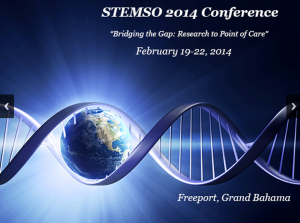I received this forwarded email today from the nephew of a patient who was in our clinical trial in 1998-1999 using dendritic cells. We had tried to follow up with her but could not locate her due to a move.
The dendritic cell vaccine that was used on her was the subject of the patent cited below.
June 7, 2014
Dear Riordan Clinic Researchers
I am writing to you in regards to research that you did in 1998-1999. I know that in dealing with cancer patients you must encounter many sad stories, so I thought you would like to hear one with a happy ending. I have looked on your web page and I don’t see that you are still doing research on this project but I thought you would be interested in the results anyway…..maybe they will spark a new research project.
My mother passed away a while back and I have been going through her papers. She saved all the information on my aunt’s (her sister) cancer treatment so I can actually give you accurate details below.
In the fall of 1998 my Aunt, XXX XXXXX was diagnosed with non-small cell lung cancer. She lived in Canada at the time but chose to go to the Mayo Clinic in Minnesota for radiation treatment since she felt their machines were better. The Mayo Clinic determined that there was a mass of large cell carcinoma, metastic grade 4 which had grown so large that it had fractured her clavicle. They knew this was not the site of the primary tumor but were not able to identify the primary location. There were multiple small tumors scattered throughout the area.
She chose to have radiation treatments of the tumor below the clavical. She then visited the Garvey Institute in Kansas, for what the papers I have call leukapheresis procedure. I know she collected her urine for a number of days and that somehow parts of it were extracted and perhaps parts of blood samples were used also. From this a fluid using the patient’s own tumor material and dendritic cells was made. I assume the study she was a part of was not FDA approved because she had to go to San Jose, Costa Rica to be injected with the finished extract. When she returned home to Canada she followed an organic juicing diet for a period of time.
That was now 15 years ago. My aunt is now 76 years old and still alive and well with no current sign of cancer. Since this time she and my uncle have built a new home in Canada, sold that home, and have moved to Costa Rica full time. She hikes and enjoys all kinds of outdoor activities. They eat a primarily vegetarian diet, supplemented with chicken and fish. They spent a couple weeks with us in California last summer and this fall we hope to make our first trip to visit them in Costa Rica. I have always been surprised that the Garvey Clinic never did follow up questionnaires (sic) with her to see how she was doing since she was such a success story. She proves that even someone with stage 4 metastatic can should not give up hope and should look for treatments that have the potential to help or cure them.
I am sure that information on her diagnosis and treatment must be in your records, but I do have copies of the material she was given, if anyone wants more information.
Sincerely,
XXX
United States Patent 7,749,495
Riordan July 6, 2010
Method for inducing an anti-tumor and anti-cachexia immune response in mammals
Abstract
The invention relates to inducing an immune response toward tumor associated antigens and in particular to the administration of high molecular weight isolates of autologous urine either alone, with adjuvants, or with antigen presenting cells. The antigen presenting cells have been cocultured with isolates of autologous urine. The invention can also be used to treat cachexia in cancer or AIDS patients.
Inventors: Riordan; Neil H. (Chandler, AZ)
Assignee: Aidan, Inc. (Tempe, AZ)
Family ID: 26920848
Appl. No.: 12/126,744
Filed: May 23, 2008
